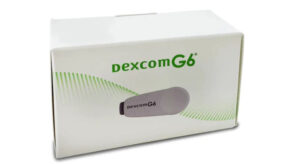Good digestive health is essential for overall health and well-being. It is important to understand the importance of digestive health and the role that nutrition and lifestyle play in maintaining it. This article will explore the benefits of good digestive health, discuss how to improve digestive health through nutrition and exercise and provide tips for creating a digestive health-friendly diet.
What Are The Benefits Of Good Digestive Health?
A good digestive health nutritionist is essential for properly extracting nutrients from food, absorbing energy, and eliminating waste. The benefits of good digestive health include improved energy levels, better nutrient absorption, and a stronger immune system. Additionally, having a healthy digestive system can help reduce the risk of chronic diseases such as heart disease, diabetes, and cancer.
The best way to improve your digestive health is through a healthy diet. Eating a variety of nutrient-dense foods, such as fruits and vegetables, lean proteins, and healthy fats, can help to promote good digestive health. Additionally, avoiding processed foods, refined sugars, and saturated fats can help to improve your digestion.

Tips For Creating A Digestive Health-Friendly Diet
- Eat more fiber: Eating more fiber-rich foods is important for digestive health because it helps to keep your digestive system regular and can reduce your risk of constipation. Include foods like whole grains, fruits, vegetables, and legumes in your diet.
- Reduce processed foods: Processed foods can be hard to digest and can cause digestive issues. Limit processed foods and focus on eating more fresh, whole foods.
- Include probiotics: Probiotics are beneficial bacteria that can help to improve digestive health. Consider adding foods like yogurt, kefir, kimchi, and sauerkraut to your diet to get more probiotics.
- Limit fatty foods: Eating too many fatty foods can cause digestive problems like indigestion and heartburn. Try to limit your intake of fatty foods like red meat, fried foods, and processed snacks.
- Stay hydrated: Drinking plenty of water is important for maintaining digestive health. Aim to drink 8-10 glasses of water each day.
- Eat smaller meals: Eating smaller, more frequent meals can help to keep your digestive system running smoothly. Try to eat smaller meals throughout the day instead of three large meals.
Types Of Foods To Include In A Digestive Health Diet
• High-fiber fruits and vegetables
• Whole grains
• Fermented foods such as yogurt, kefir, sauerkraut, and kimchi
• Foods rich in probiotics, such as miso and tempeh
• Healthy fats, such as olive oil and avocado
• Lean proteins, such as fish, poultry, and eggs
• Beans and legumes
• Herbal teas
• Water
Why Is Digestive Health Important?
Digestive health is an important component of overall health and wellness. When the digestive system is functioning properly, it is able to effectively process the food and liquid we consume, extract and absorb the essential nutrients and energy, and eliminate the waste products from our bodies.
The digestive system is made up of many different organs, including the mouth, esophagus, stomach, small and large intestines, pancreas, gallbladder, and liver. Each of these organs plays an important role in the digestive process. The mouth and esophagus are responsible for receiving the food and liquid, while the stomach and intestines break down the food and extract the nutrients. The pancreas and liver are responsible for producing enzymes and hormones that aid in digestion. The gallbladder stores and releases bile to help break down fats.
Proper digestive health is essential for maintaining general health and well-being. An unhealthy digestive system can lead to a variety of symptoms, such as bloating, constipation, diarrhea, gas, heartburn, nausea, vomiting, and abdominal pain. The unhealthy digestive function can also result in nutrient deficiencies. Since the body is unable to absorb the necessary nutrients from the food.
In order to maintain digestive health, it is important to consume a healthy, balanced diet and drink plenty of water. Eating plenty of fiber-rich foods and avoiding processed foods can help keep the digestive system functioning properly. Regular physical activity can also help improve digestive health, as it encourages regular bowel movements and helps prevent constipation.
If you experience any type of digestive symptoms. It is important to talk to your doctor to determine the cause and to receive appropriate treatment. Taking care of your digestive health is essential for maintaining overall health and well-being.
How To Talk To A Nutritionist About Digestive Health?
When talking to a nutritionist about digestive health, it is important to provide them with as much information. As possible about your current diet, lifestyle, and any symptoms that you may be experiencing. You should also tell them about any medications or supplements that you take. As well as any medical conditions that you have. It’s also important to ask questions about the nutritionist’s experience and expertise in digestive health, as well as any specific recommendations they may have for you. Finally, you should be sure to tell the nutritionist about any concerns or goals that you have related to your digestive health. With this information, the nutritionist will be able to create an individualized nutrition plan to help you achieve your desired digestive health goals.
Conclusion
Good digestive health is essential for overall health and well-being. Eating a variety of nutrient-dense foods, engaging in regular physical activity, and taking supplements can help to promote good digestive health. Additionally, it is important to talk to your doctor or a nutritionist if you are experiencing digestive health issues so they can provide personalized advice. Understanding the importance of digestive health and taking steps to maintain it can help to improve your overall health and well-being.

Allison Cheng is a Michigan-based health enthusiast with extensive experience in lifestyle and fitness coaching. She has a special expertise in nutrition and mental health coaching. She is passionate about helping people become their best selves through health and wellness, and loves to share her knowledge and experiences through her blog and health coaching practice.



